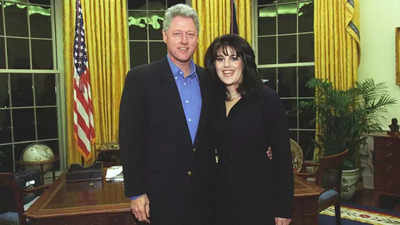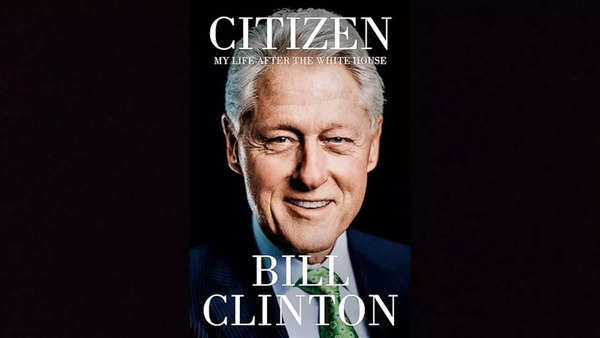
Bill Clinton, the 42nd President of the United States, is one of the most influential political figures even today. He was and remains to be famous for his healthcare reforms, his economic policies, and his diplomacy initiatives.Even after he stepped down from the position of POTUS, Clinton continued with his philanthropic work through his foundation and helped address global issues.
And now, Bill Clinton’s new memoir, ‘Citizen: My Life After the White House’ was released on November 19. From social media to news organisations, everyone is up to date with the revelations he made and the points he put forward.
And according to most sources and reports, the book is about his post-presidential journey (as evident by the name), his life in global philanthropy, and of course, his growth as a human. He talks about the Clinton Foundation, the good work they have been doing for the world, all across the world, his initiatives with world leaders, his aim to rid the world of health crises like HIV/AIDS, and more.
And most of all, what Clinton did in his memoir is answer questions that everybody asked him (quite often), and wanted to ask him in different points of his life.

‘Citizen: My Life After the White House’ by Bill Clinton (Image: Knopf)
Here we mention the 3 most important revelations Clinton made through ‘Citizen’, his memoir.
The Monica Lewinsky conspiracy
Bill Clinton’s relationship with Monica Lewinsky, who was an intern at the White House during his term, is a topic of conversation that hasn’t let him breathe for years. From interviews to talk shows, he was presented with her name, and if he did enough to be fair to her and others involved.
Now, according to The Guardian, Bill Clinton wrote in ‘Citizen’, “I said, ‘No, I felt terrible then.’ ‘Did you ever apologize to her?’ I said that I had apologized to her and everybody else I wronged. I was caught off guard by what came next. ‘But you didn’t apologize to her, at least according to folks that we’ve talked to.’ I fought to contain my frustration as I replied that while I’d never talked to her directly, I did say publicly on more than [one] occasion I was sorry.”
The Guardian also mentions “He notes that NBC soon added a clip of him speaking to faith leaders at the White House in 1999 and apologizing to his family, Lewinsky and her family and the American people. “I meant it then and I mean it today,” he writes.”
The Epstein controversy
Jeffrey Epstein, an American financier and sex offender, was known for his wealth, connections to influential figures, and his illegal activities. The Epstein Island, his hub for everything horrifying and illegal, revealed his true face to the world, and he brought down many more with him.
Former US President Bill Clinton was one of the names in the Epstein controversy, and here is what he had to say about it.
According to The US Sun, Clinton wrote in his memoir “I had always thought Epstein was odd but had no inkling of the crimes he was committing. He hurt a lot of people, but I knew nothing about it, and by the time he was first arrested in 2005, I had stopped contact with him. I’ve never visited his island.”
He also added “The bottom line is, even though it allowed me to visit the work of my foundation, traveling on Epstein’s plane was not worth the years of questioning afterward.”
His golden rules for Politics
Another revelation Clinton made in his memoir was about his 12 golden rules for surviving in Politics.
In an exclusive excerpt shared by People Magazine (website), the 12 rules were –
“Never tell anyone to go to hell unless you can make them go (Sam Rayburn told LBJ that).
Never drink in public — you might act like yourself.
Whenever you hear, “It’s nothing personal,” brace yourself.
When someone can shift the heat from himself to you, prepare to be barbecued.
Everyone is for change in general but often against it in particular — it depends on whose ox is being gored.
When people say, “It’s not a money problem,” they’re always talking about someone else’s problem.
If you see a turtle on a fence post, it didn’t get there by accident.
When you start to have a good time, you’re supposed to be somewhere else.
You’re always most vulnerable when you feel invulnerable or when you’re angry and exhausted.
Take criticism seriously, but not personally (one I got from Hillary and well explained by Don Miguel Ruiz in The Four Agreements).
If you want to bring your feelings to work, get in another line of work.
Don’t give up on people — if you dig long enough, there’s almost always still a person down there somewhere.”
Clinton-Lewinsky affair: How did the scandal unfold?

